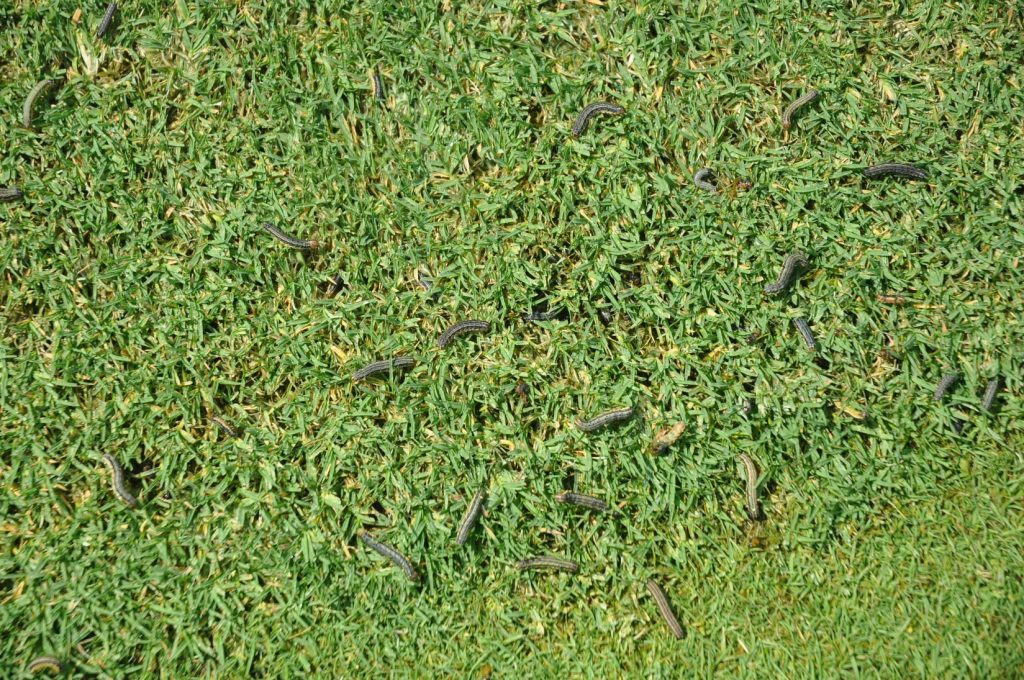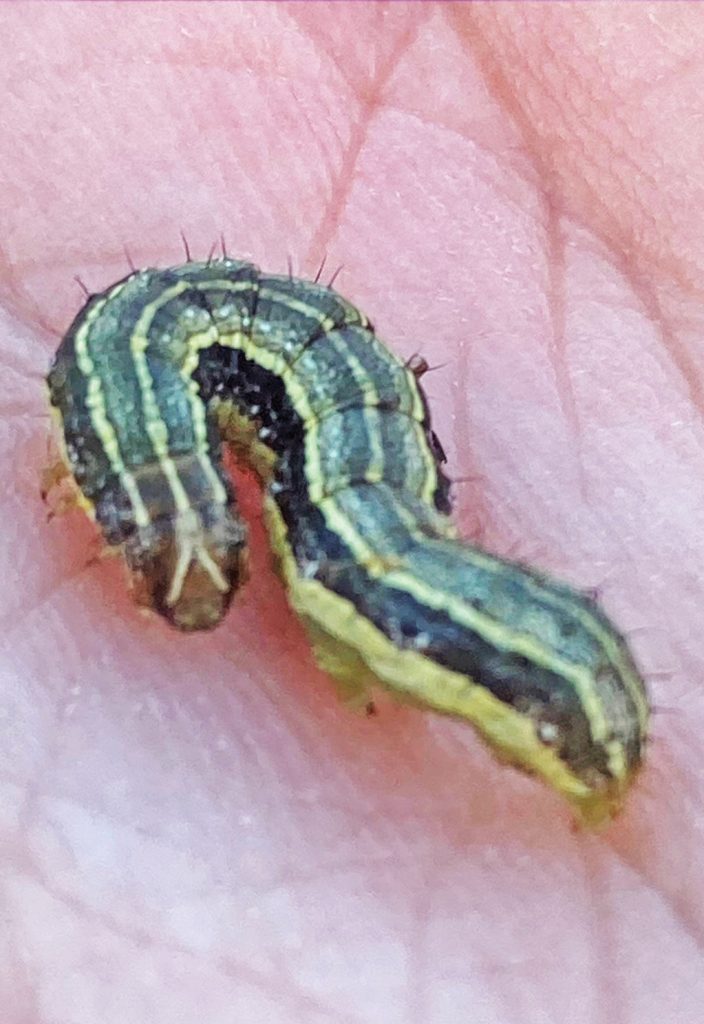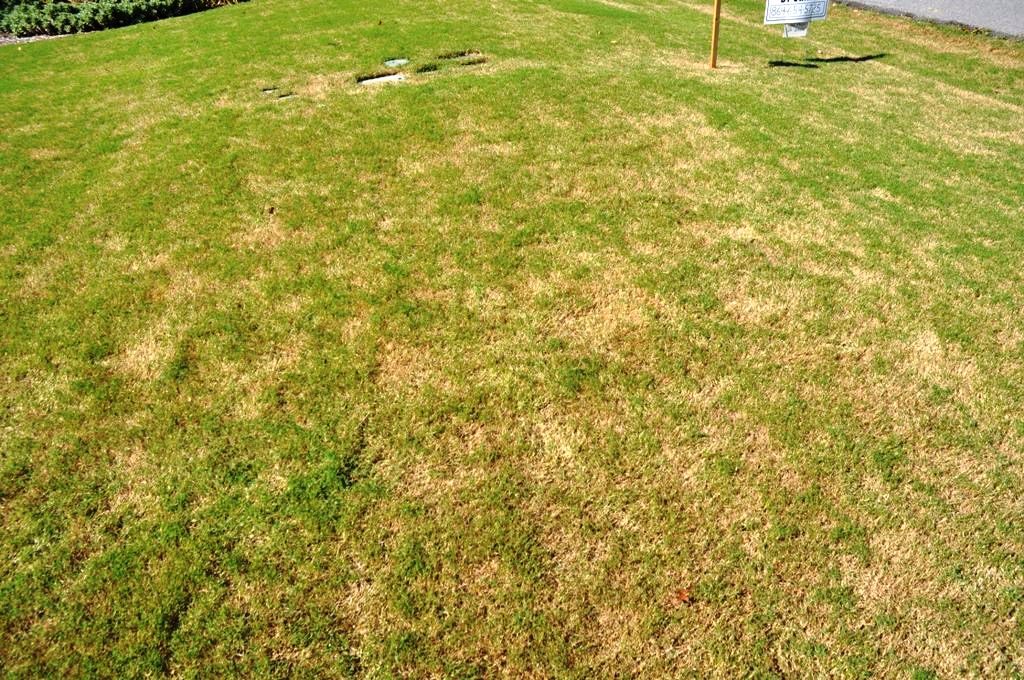
BLYTHEWOOD/FAIRFIELD COUNTY – As the armyworm infestation is reportedly moving rapidly across the state, Kenny Mullis, who manages a number of farm pastures in Blythewood and Fairfield County, says the infestation in this area is worse than he’s seen in years.
“They come in cycles, but it’s been a while since we’ve seen them this bad around here,” Mullis said. “I was out of town at a conference and had so many calls from my customers saying they had armyworms in their fields that I came on back yesterday.”

Jackie Jordon, the Clemson Extension Urban Horticulture Agent who covers Fairfield and Richland Counties, said the worms could be worse right now because of all the moisture we’ve had recently.
“These armyworms are looking for a lot of nitrogen in their diet, so they’re looking for crops that have a lot of nitrogen in them, especially in the newest leaves,” she said. “So they’ll eat the blades of grass – particularly the turf grasses. They tend to go after Bermuda lawns, but they like all warm-climate turf grasses. And they eat a lot.
“But the big concern in these rural areas right now is with the pastures,” she said. “Because they’re eating so much of the grass in pastures – especially coastal Bermuda – it could really damage the hay crops. Right now, they’re taking off another cutting of hay. And we don’t have a whole lot of time left for our coastal Bermuda to grow because it’s getting cooler soon. The infestation can be bad for the pastures, and it also could also cause an increase in the price of hay.”
“They like tall fescue in pastures. There’s not a whole lot of tall fescue in Blythewood, but there’s a lot more further north in Winnsboro and Fairfield County,” Jordan said.
“These worms are very visible in the mornings. They move across a lawn in a wave,” she said. “They eat the leaves of the grass almost to the roots, and the lawn begins to turn brown. They usually eat the newest grass leaves.
“The first generation of these worms usually come in mid- to late July. It takes them about 30 days to enter their life cycle,” Jordan said. “So we usually don’t see them until late August. Then you start seeing damage, and we have them till about the end of October.”
Jordan said yards and pastures can be treated for armyworms, and that some of the treatments, such as Bt insecticide, are organic and affect only the worm, not other animals.
For information about treating armyworms in the lawn or in livestock pastures, go to https://hgic.clemson.edu/factsheet/armyworms/ for a list of pesticides including organic treatment.












